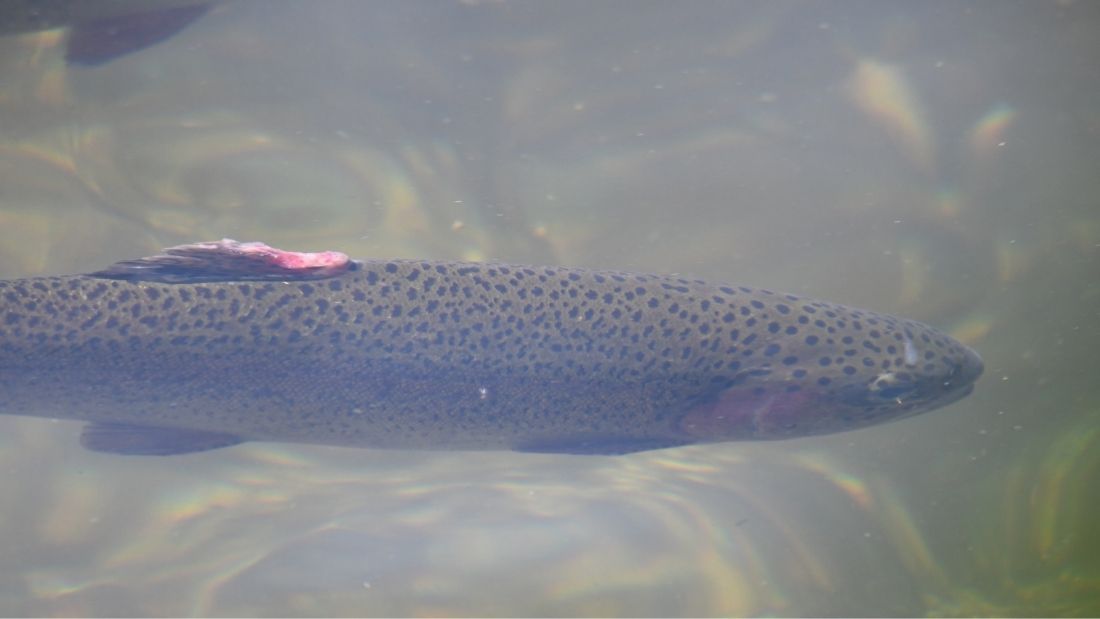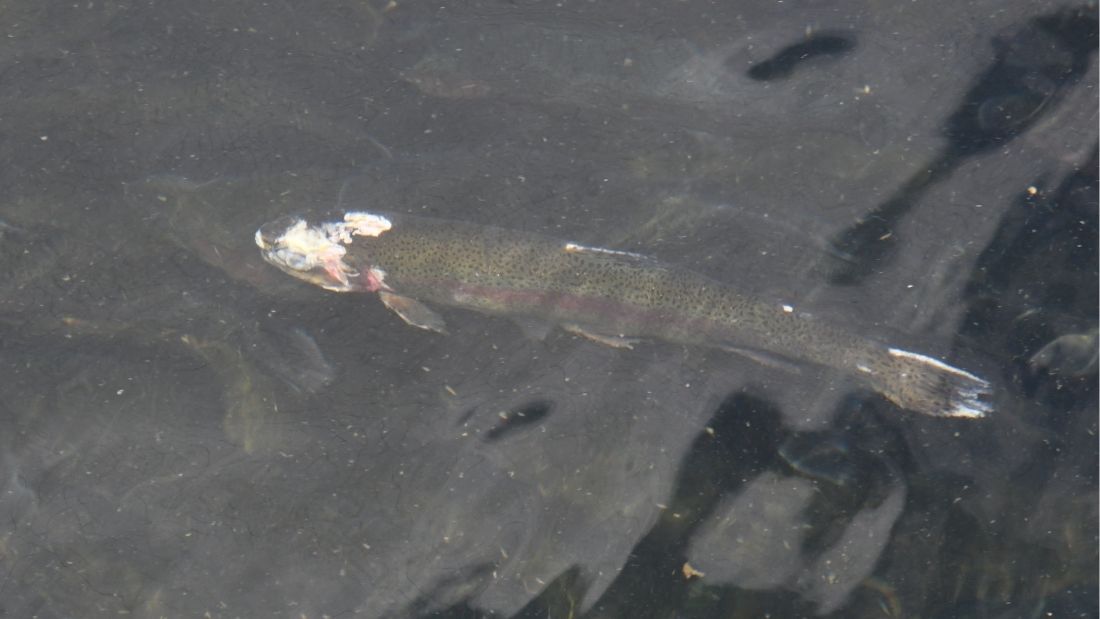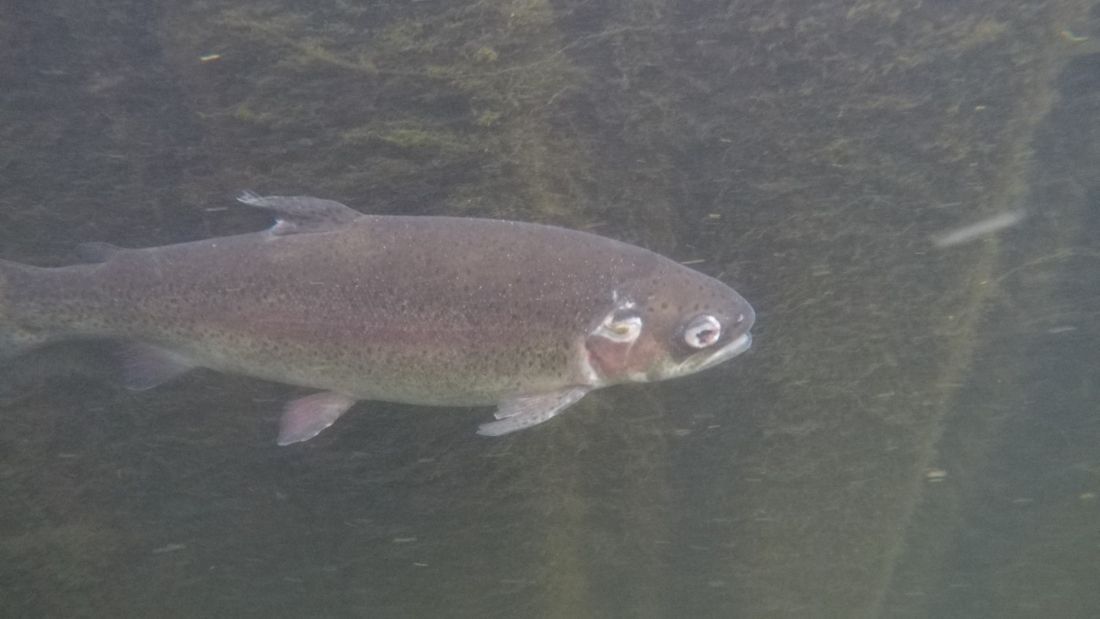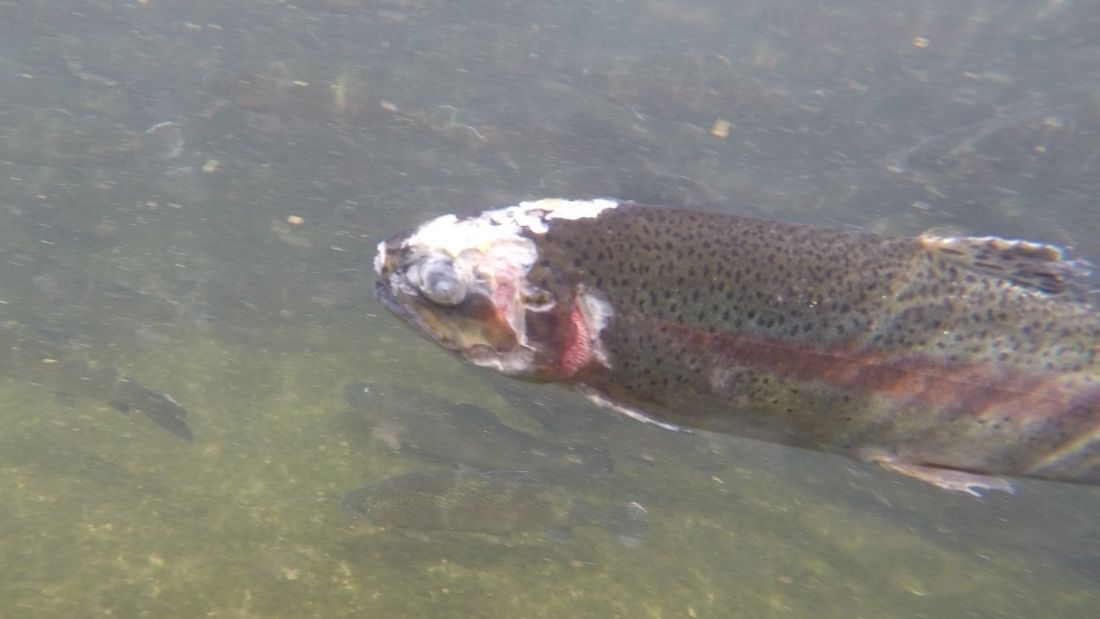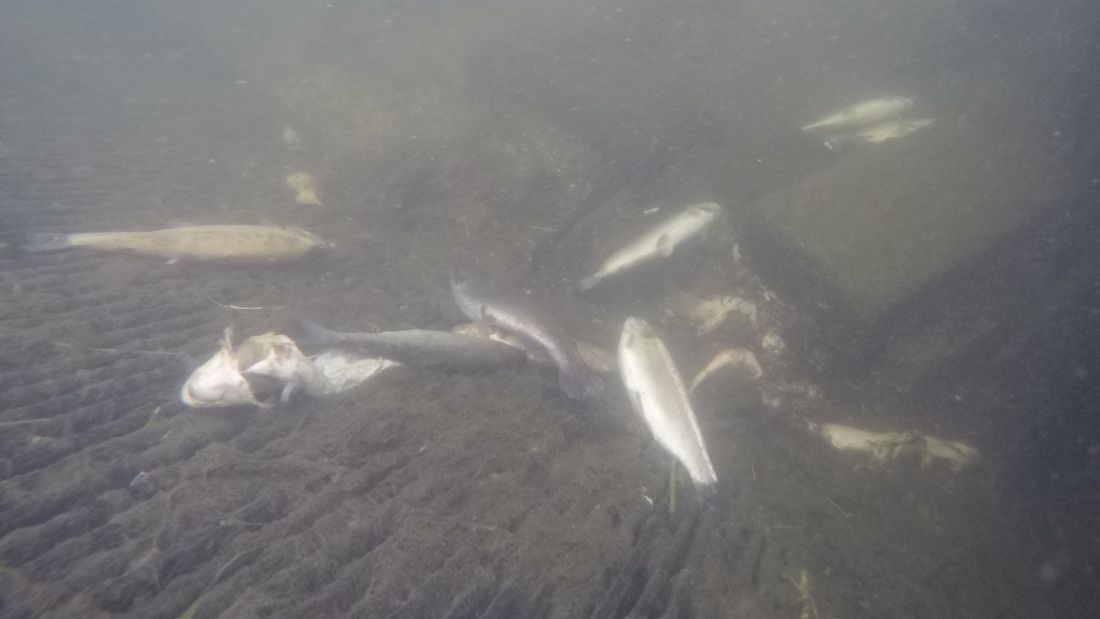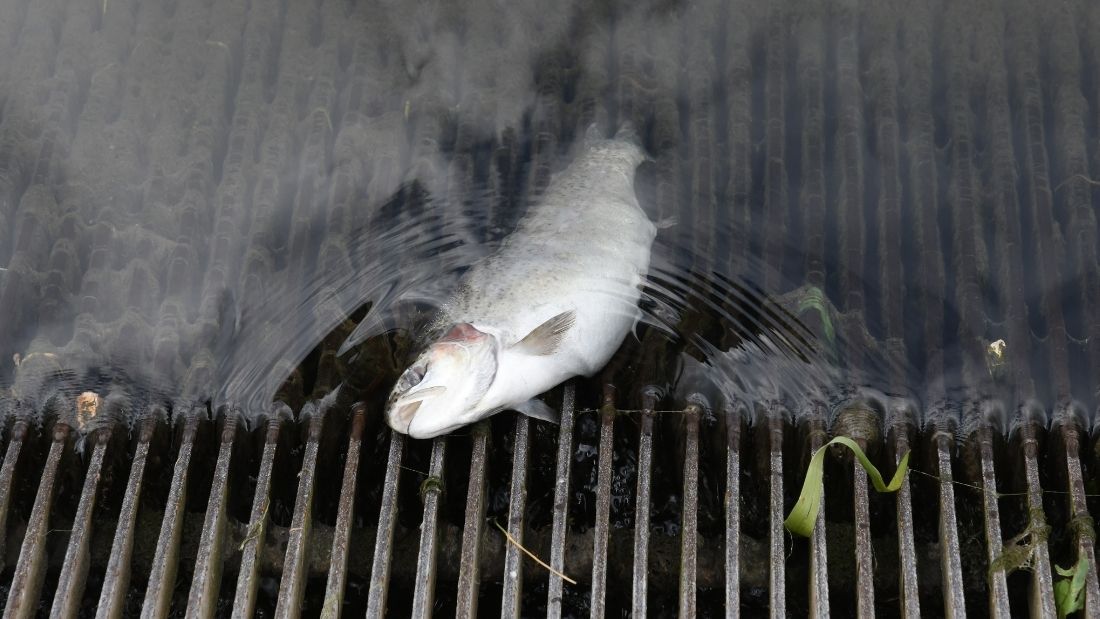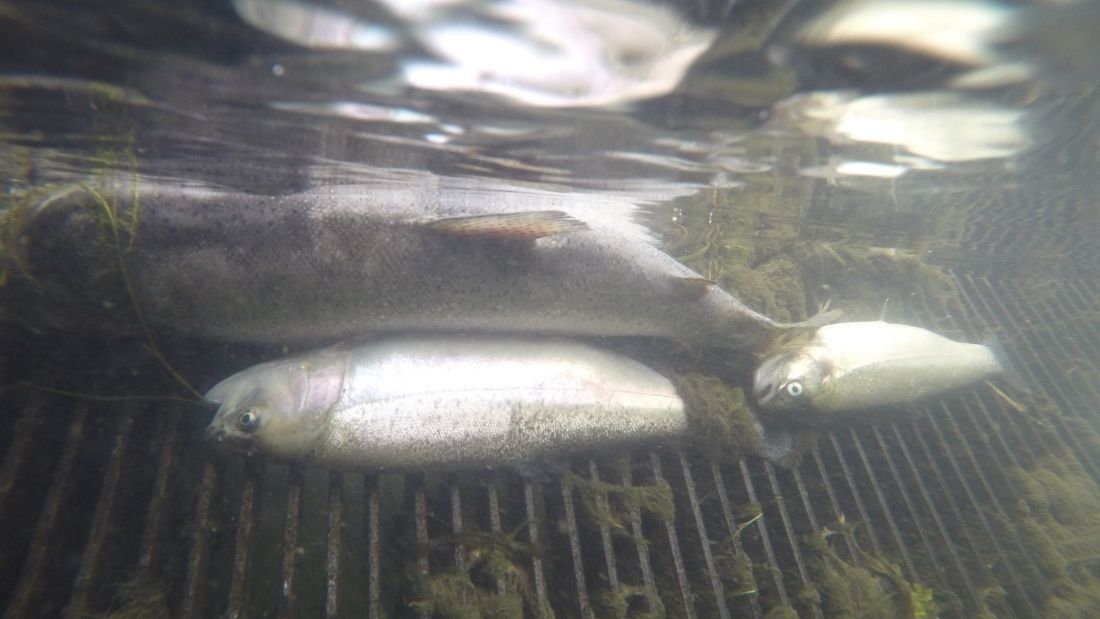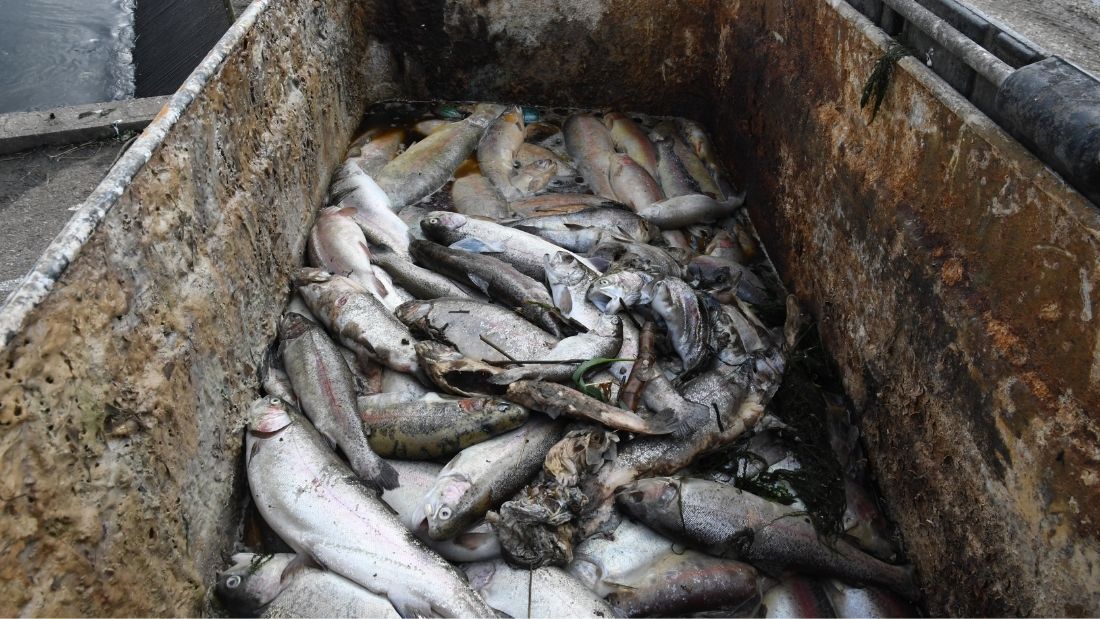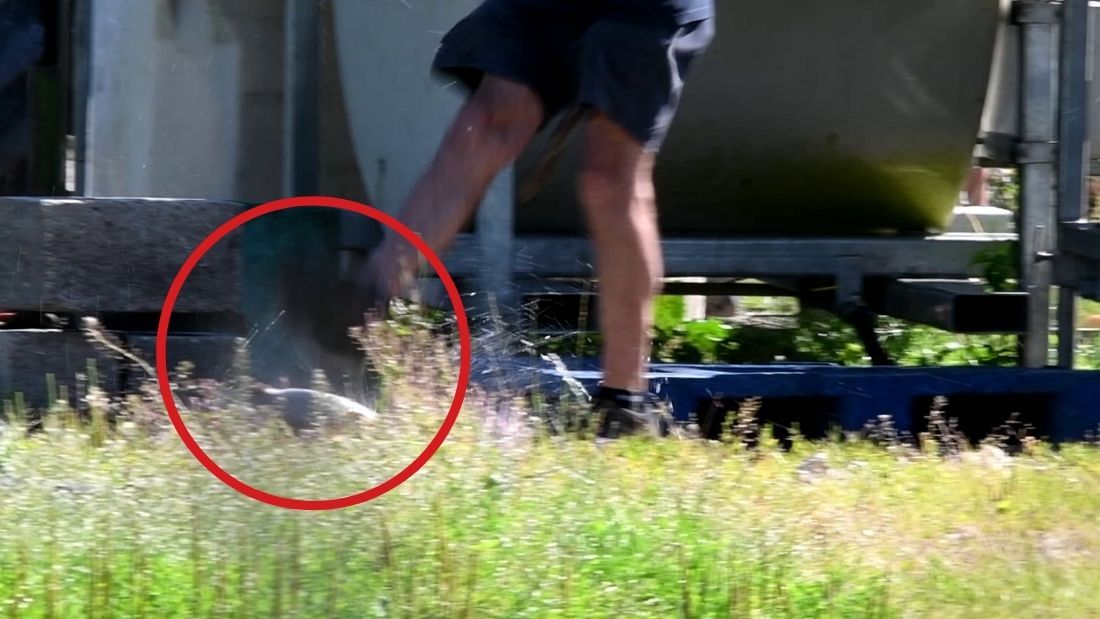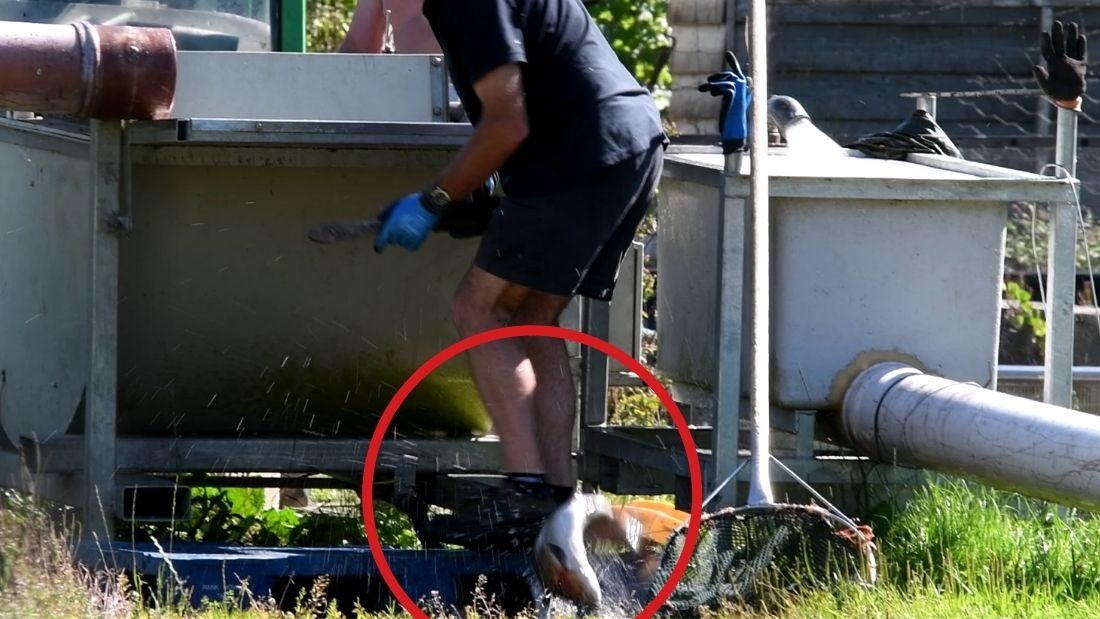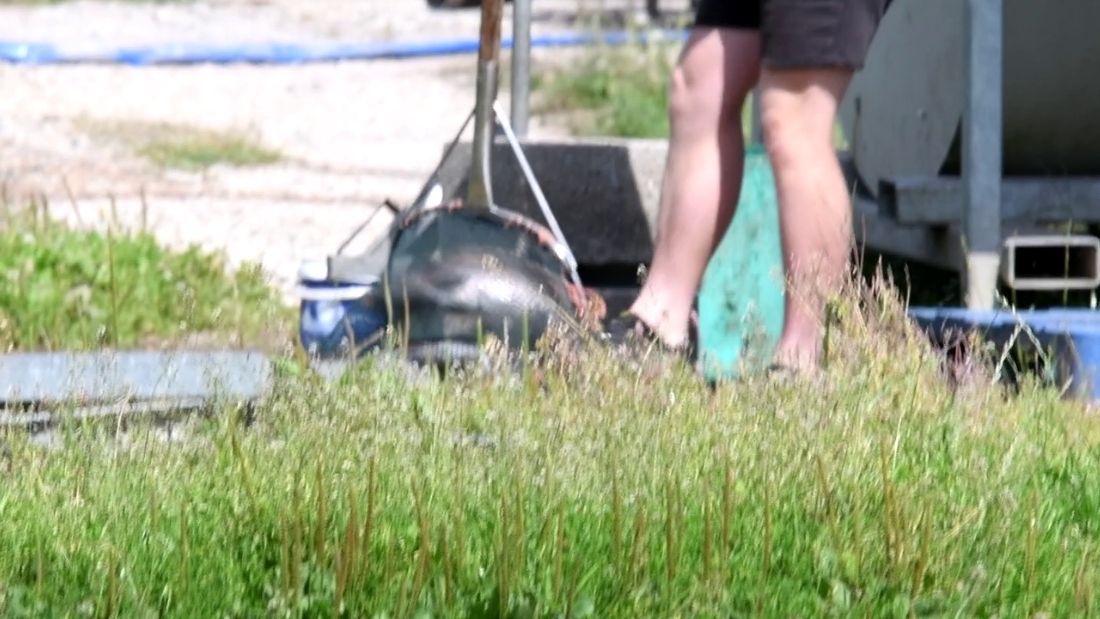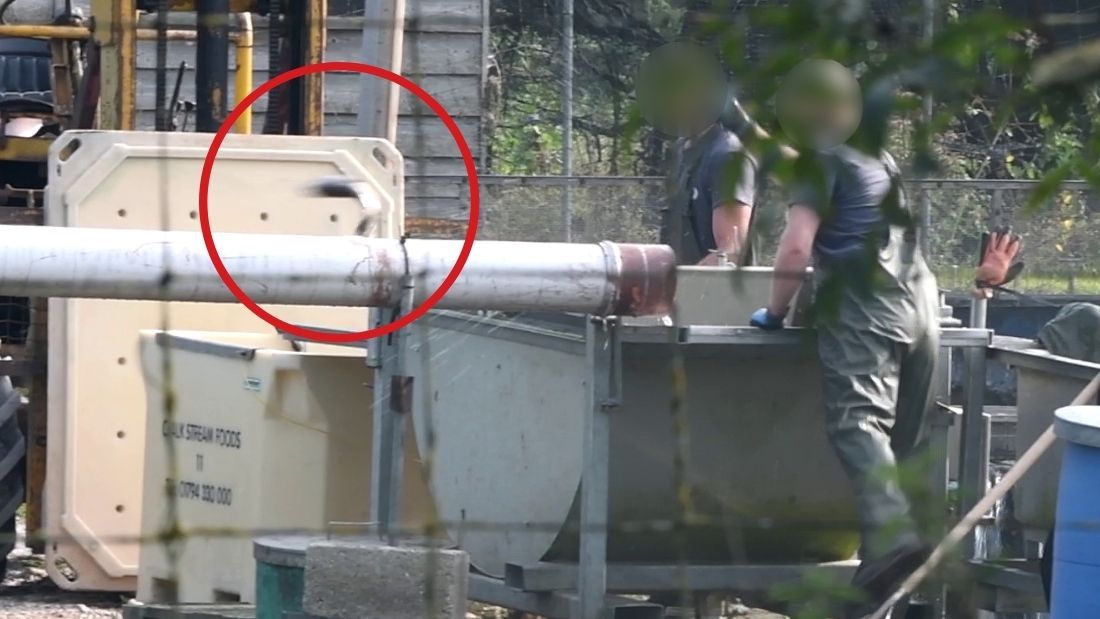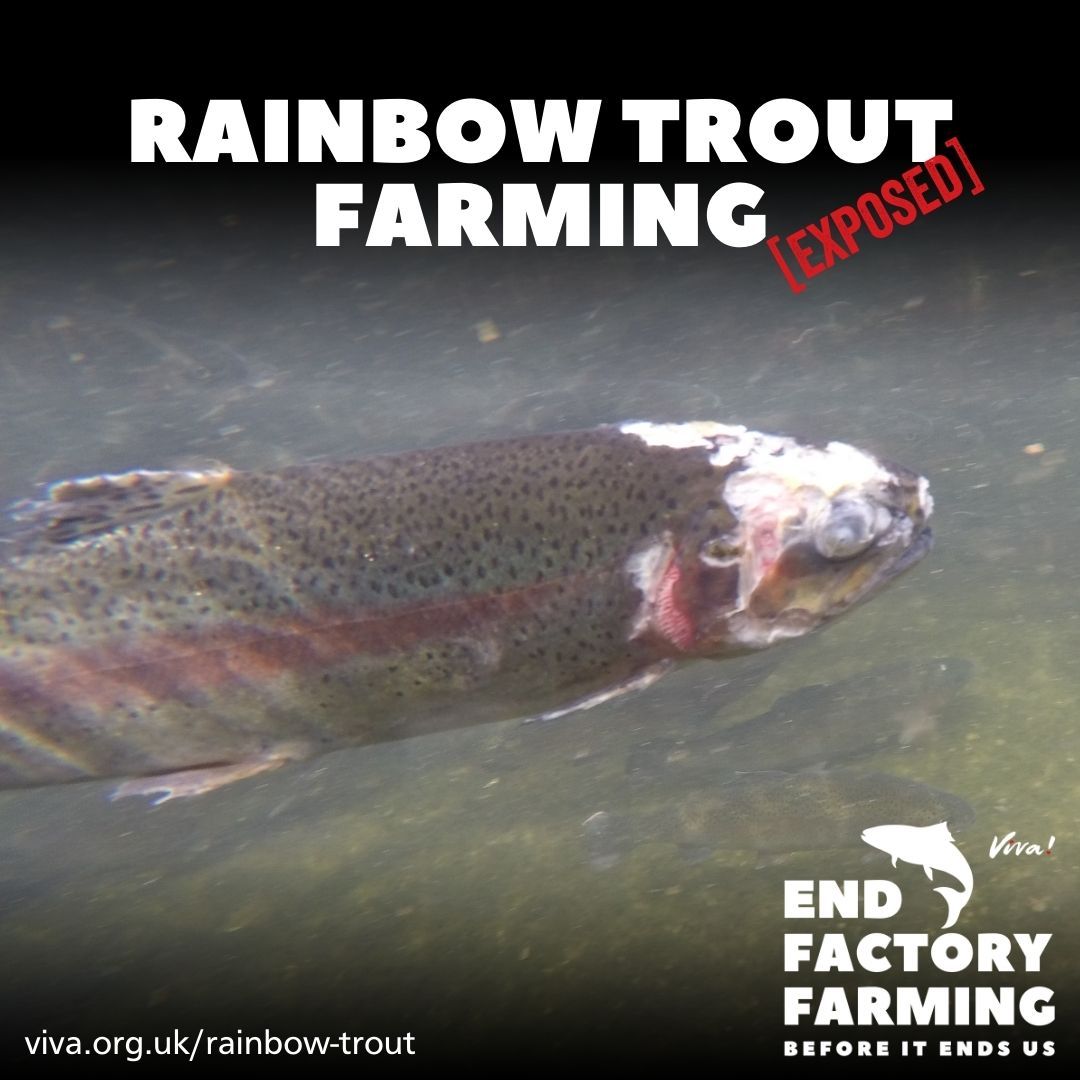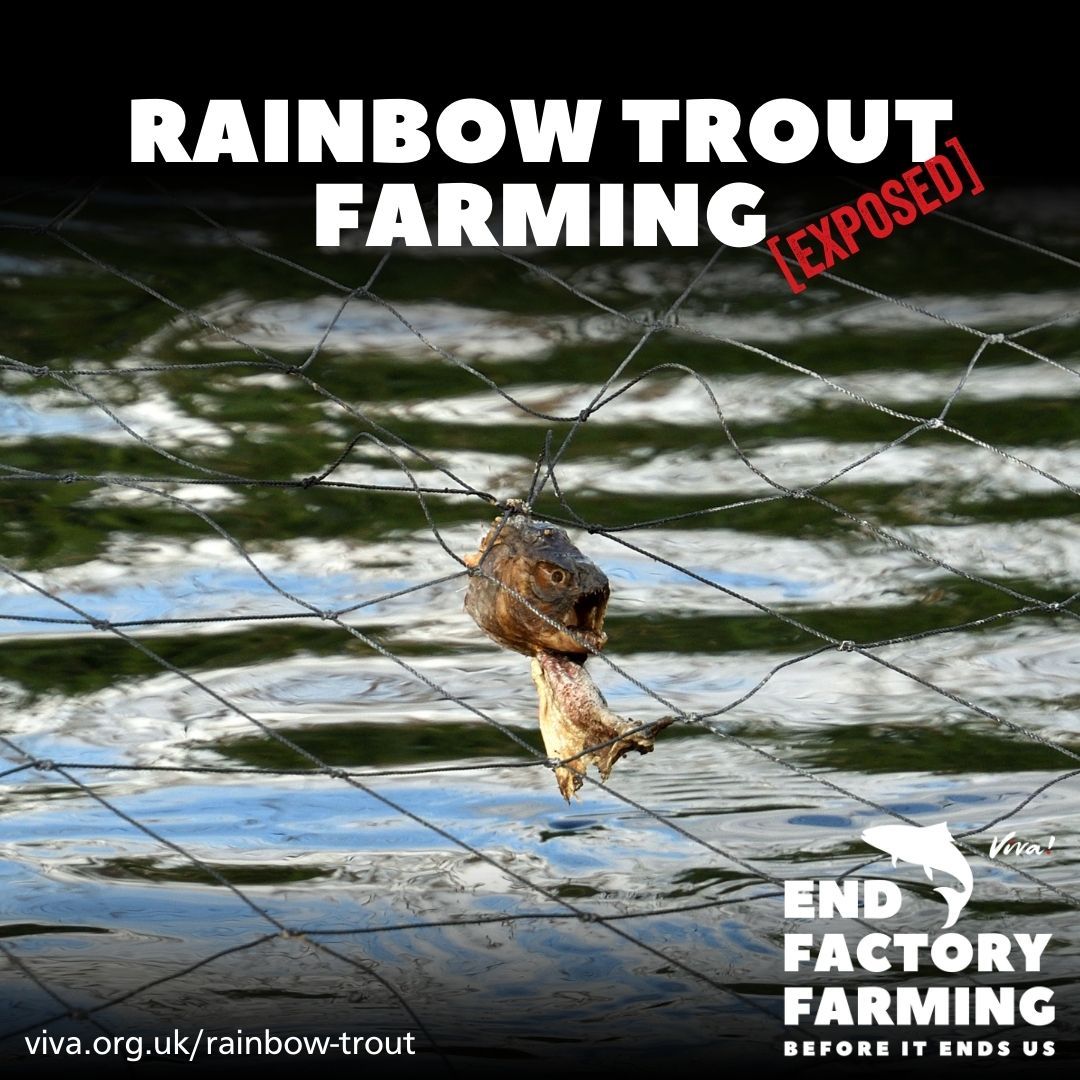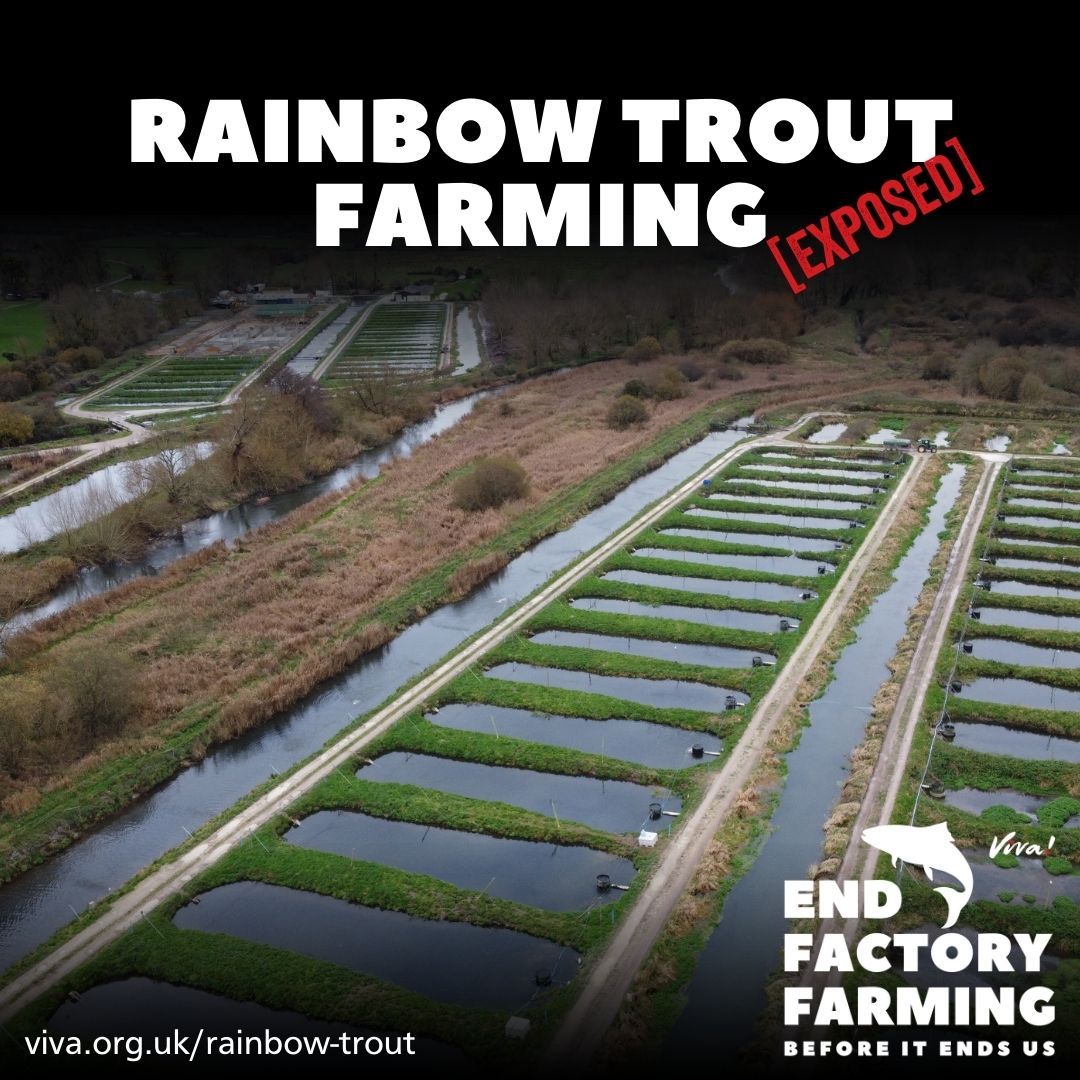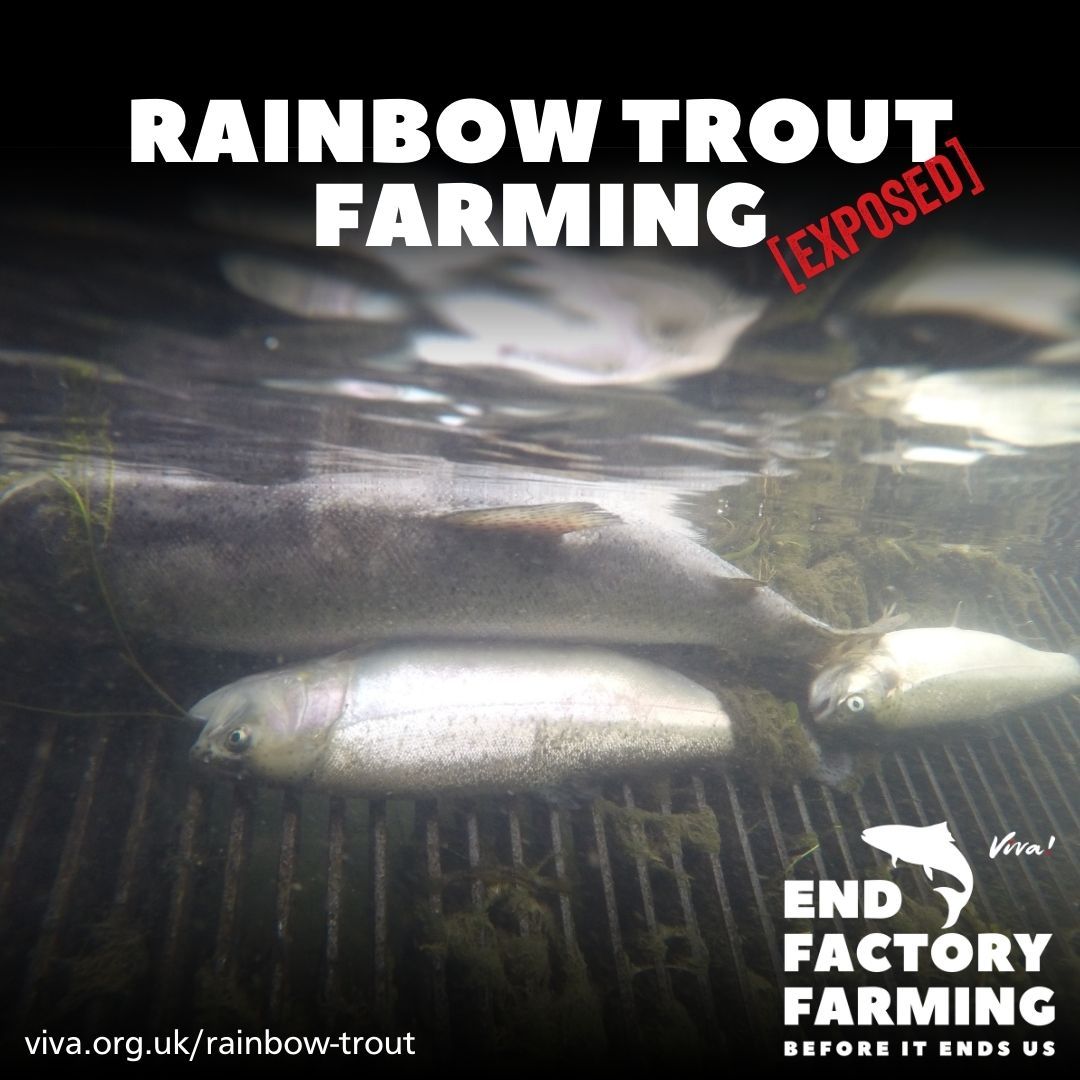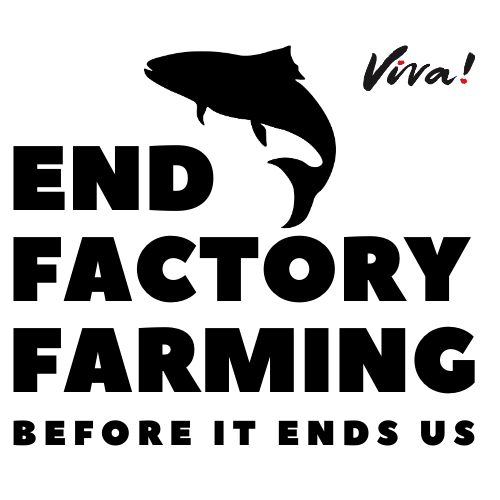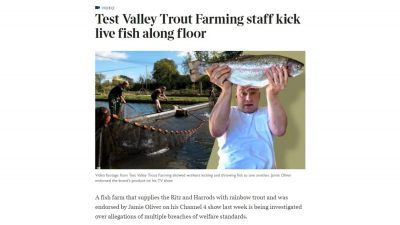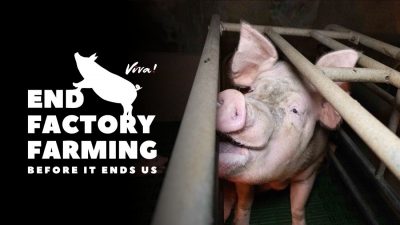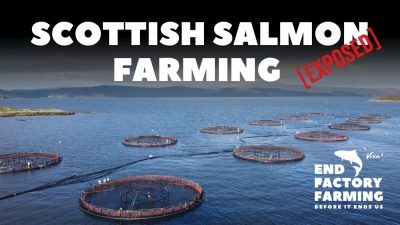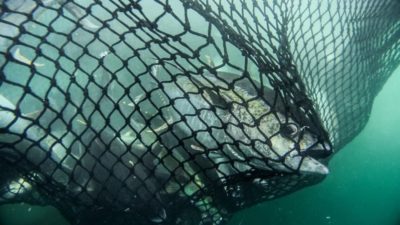Investigation: Rainbow Trout
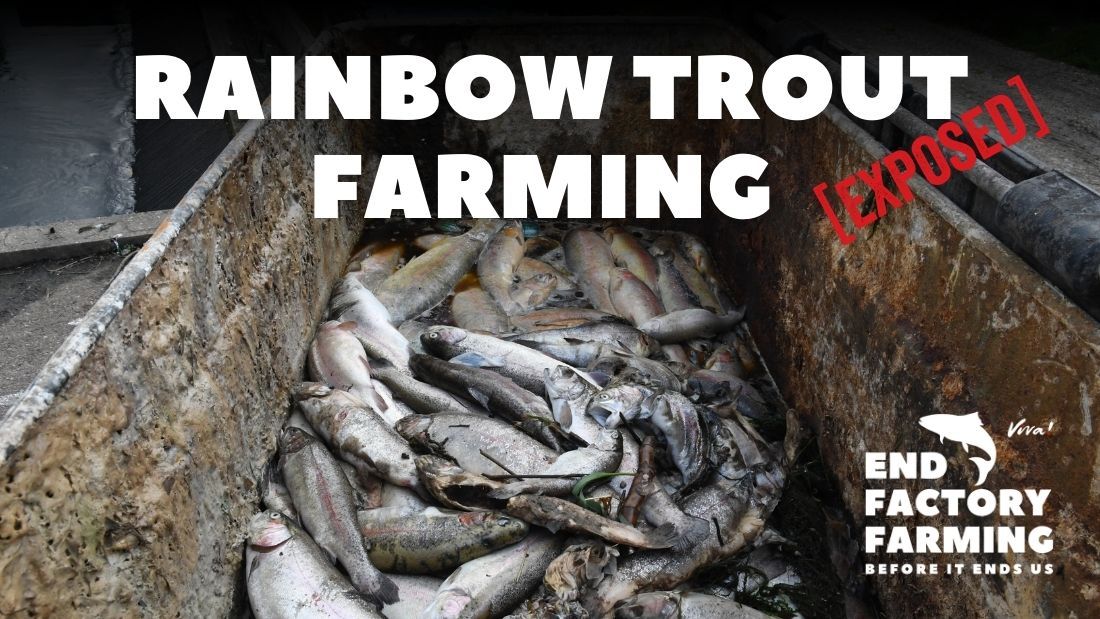
Between June and November 2020, Viva! investigated four rainbow trout farms supplying high-end supermarkets and ‘luxury’ food retailers including Waitrose, Abel & Cole, Harrods and Fortnum & Mason. Instead of crystal-clear chalk stream water, the trout were found severely overcrowded in filthy ponds suffering from extreme stress, abrasive injury and predation.
Video footage from a Test Valley Trout farm, supplying ChalkStream Foods and endorsed by top chef Jamie Oliver, also captured workers throwing live trout, kicking them with frustration, and bashing them around the head with a wooden priest (a short blunt baton). This is an extremely ineffective way to kill fish, which prolongs a painful death.
As brands supposedly synonymous with sustainability and high welfare standards, serious questions have now been raised about the day-to-day practices taking place across multiple sites. Clear breaches of RSPCA welfare standards* and Quality Trout UK guidelines demonstrate that regardless of species or certification schemes, when animals are factory farmed, profit is prioritised over welfare.
* On 11 February 2021, the RSPCA confirmed the removal of Test Valley Trout’s Island farm in Romsey has been removed from the RSPCA Assured certification scheme.
More images from Viva!’s investigation can also be publicly viewed on Flickr.
Read The Times Exclusive
Promoted as a ‘sustainable’ solution to overfishing, modern fish farming (otherwise known as aquaculture) confines thousands of fish together in unnatural environments, creating a breeding ground for disease and causing widespread suffering.

As a result of high stocking density, poor handling practices and attacks from predators, physical damage to tails, fins and eyes were found to be widespread. Inflicted with abrasive injuries, that removes the protective mucus on the fishes’ skin, leaves the fish open to infection from parasites, bacteria and secondary fungal infection.
Despite defensive netting put in place to keep out herons, corvids and gulls, several large gaps and openings were documented, allowing for birds to strike the fish and cause unnecessary distress.
Some trout, too weak to swim against the flow of water, were filmed pressed against the outlet grilles gasping for their last breath. Once dead, many were left to rot at the surface or sink to their watery graves in various stages of decomposition.
Fungal build-ups indicated some dead had been left a considerable period of time, in complete violation of standards that call for the prompt removal of dead fish to avoid the spread of dangerous bacteria.
This raises more serious questions about water quality and what’s lurking beneath the surface. In the midst of a global pandemic, such disregard for hygiene safety poses a serious threat to public health.
Many consumers will be astonished to discover the industrialised nature of trout farming, which uses heavy-duty machinery to pump fish between ponds during their life-cycle. This causes immense stress and disorientation to fish as they are transported through pipework with powerful and at times sporadic water jets. Not having a constant flow of water through the system inflicts abrasive injury and limits oxygen supply.
At Test Valley Trout’s Island farm in Romsey, contracted by ChalkStream Foods, workers were documented removing fish from the water for an extraordinarily long period of time to weigh them in a dry bucket – exceeding RSPCA ‘out of water times’ by more than double. This practice limits the fishes’ oxygen supply and causes suffocation. The workers’ actions will have inflicted tremendous stress and anxiety in these cases.
Surveillance footage also captured workers handling the fish at a grading station, where they’re sorted by size for slaughter. Workers were seen throwing live trout, kicking them with frustration as they slapped on the ground and bashing them around the head with a wooden priest – an extremely ineffective killing method, prolonging a painful death. One fish was observed writhing around for several minutes while the worker failed to catch and kill them with the end of a short broom handle.
The trout deemed unprofitable were discarded, ineffectively culled, and left to slowly die of asphyxiation.

“The entire series of photos cries neglect. The place looks abandoned. So many welfare issues appear to be occurring with loads of dead fish trapped in drains and many swimming around with terrible damage to their fins and bodies. I’d be willing to bet there are rampant bacterial infections, the water quality looks terrible.”
– Professor Culum Brown (Head of TheFishLab at Macquarie University)

“Strong evidence exists that fish feel pain similarly to ourselves. It is cruel to leave seriously ill or injured fish to die, to suffocate in air, or to strike them with poorly-aimed rods. Such treatment of fish is inhumane.”
– Professor Andrew Knight (Founding Director of the Centre of Animal Welfare and EBVS European and RCVS Veterinary Specialist in Animal Welfare Science, Ethics and Law)
Share our investigation graphics
Download one of the graphics below and share with the following text:
Modern fish farming prioritises profit over welfare, causing extreme stress and unnecessary suffering. It’s time to End Factory Farming Before It Ends Us.
👉 viva.org.uk/rainbow-trout
#EndFactoryFarming #EFF
Share our investigation video
Copy the link below into the status bar on your social media accounts or email to a friend.
Rainbow Trout Farming Exposed: https://youtu.be/Lb-ROIX0cW8
Share our End Factory Farming fish logo
Your voice counts!
Join us in calling on Prime Minister Boris Johnson to End Factory Farming Before It Ends Us.
End Factory Farming
Choose Vegan

The Times [Exclusive]: Test Valley Trout Farming staff kick live fish along floor


Andover Advertiser: RSPCA probe alleged cruelty at fish farms in Hampshire

Southern Daily Echo: RSPCA probe alleged cruelty at fish farms in Hampshire

Romsey Advertiser: Test Valley Trout Island farm loses RSPCA Assured status

Sentient Media: Are Fish Factory Farmed?
By becoming a monthly donor, you will automatically become a Viva! Supporter and receive a subscription to Viva! Life magazine and a supporter welcome pack.We have lots of other welcome goodies available to our supporters, such as our fantastic range of discounts in our Supporter Discount Scheme.
(£1+ per month)
(£3+ per month)
(£5+ per month)
(£200+ fixed cost)




